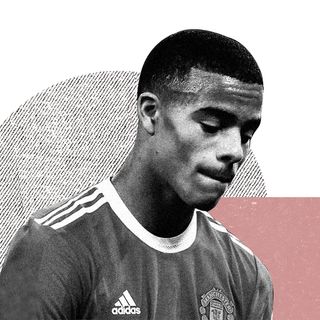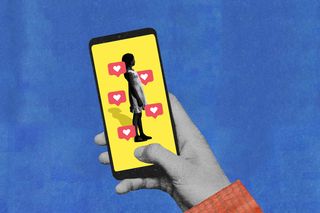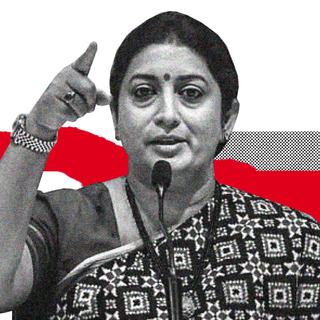
When Parents Document the Lives of Their Autistic Children to Raise ‘Awareness,’ the Ethics Are Murky
“It seems the Internet has created a public international support group where parents of autistic… children are not just parents, but content creators and community leaders, photographers, and bloggers.”

In the age of social media, every other person secretly dreams of becoming an influencer whether or not they’d like to publicly admit to it. This often makes them use every trick in the book at their disposal — from uploading cooking hacks to showcasing their styling abilities to offering parenting advice — in order to gain more followers. The problem, however, arises when one’s desire for fame comes at the cost of another’s privacy — especially in their most vulnerable moments.
“Sharenting” — a term coined by the Wall Street Journal in 2010 — refers to the practice of parents’ documenting their children’s antics and achievements through publicly-shared posts on social media. It’s neither a new phenomenon nor something that hasn’t been criticized before. Yet, some parents continue to participate in it — to connect with fellow parents, share parenting struggles, or project the idea of a perfect life. And in cases of children with disabilities like autism, either to raise “awareness” or to depict themselves as a “savior” for raising a “difficult” child.
“It seems the Internet has created a public international support group where parents of autistic and disabled children are not just parents, but content creators and community leaders, photographers, and bloggers,” Haley Moss, an autistic woman, wrote in The Washington Post in 2020.
Sharenting, by itself, is an ethical nightmare for a number of reasons. For starters, a child can’t give informed consent to information about their lives being shared because they may not understand the nuances of privacy or what its violation entails. Easily accessible information may also make children targets for identity theft and, in worse cases, perhaps, even pedophilia, with their images ending up on pornographic websites. Moreover, it deprives children of the chance to be in control of their digital footprint.
However, when it comes to the sharenting of autistic children, the ethical quagmire worsens, with parents posting photographs and videos of their children having meltdowns, stimming, or hyperfixating on a special interest — all activities that many autistic individuals are otherwise bullied and ostracized for, often forcing them to mask.
Related on The Swaddle:
Why We Expect People With Invisible Disabilities To Learn To Act ‘Normal’
These posts also refuse to respect the agency of disabled children – treating them like an Instagrammable avocado toast or their latest haul from H&M that their followers must know about. The “trend” of sharenting autistic experiences has become so common as to inspire satirical pieces like “I was never able to accept my son’s autism until I monetized it through blogging.”
In an ideal world, an autistic individual wouldn’t have to mask their neurodivergent traits. But the world we live in is far from ideal. Here, autistic children quite likely to be bullied due to their neurodivergence. So, often, to protect themselves from abuse, autistic individuals mask their neurodivergent traits – even at the cost of their self-identity and mental health. But when parents feature precisely those traits as “oddities” or “difficulties” on social media for the world to spectate, they are allowing visual evidence of their children’s autistic experiences to linger forever in this digital landscape.
“They are often posted without consent and could haunt children for life… It’s complicated enough to exist as an autistic child or adult while knowing how people negatively perceive autism. Being exposed to these online messages parents share only makes things harder. Imagine learning that your parents see you the same way cruel schoolyard bullies do — and that they shared those feelings with the world,” Moss notes.
The need for awareness is certainly important but, as Shaneel Mukerji points out, there already exists a lot of information on autistic meltdowns or stimming in the public domain. Mukerji is a special educator and therapist from Kolkata, who works with autistic adults and children. She says that it is helpful for caregivers to familiarize themselves with ways to support their autistic children or learn about common triggers from fellow parents. But, often, rather than putting things in context, these videos end up “showing the behavior as if it came out of nowhere.”
This fuels the notion that having an autistic child is like “being stuck” with a “curse.” There are also some who argue that this might precisely be why some parents share things online — to be hailed by an ableist audience as beacons of kindness and bravery for daring to bring up an autistic child.
Related on The Swaddle:
Not Every Autistic Person is a ‘Savant.’ But the Stereotype Has Significant Mental Health Costs.
“There’s nothing to be learned from taping and posting a video of someone having a meltdown that you cannot learn in another way… Meltdowns aren’t fun for the children experiencing them, and they’re certainly not doing it to make their parents’ lives difficult… But posting videos of it generates hits, and gets [the parents] comments like: ‘You’re such a saint for dealing with this!'” says Gopika Kapoor, a neurodiversity consultant, author, and parent advocate. Perhaps, this is also why parents of some autistic kids brand themselves as “autism moms,” much to the chagrin of actually autistic individuals. Their anger stems from parents appropriating their kids’ struggles as their own “suffering,” which itself can be ableist.
But some parents insist that the lack of awareness around autism is the reason they are forced to take to social media to understand how to parent their autistic children better. “It’s hard as parents to learn how to deal with situations that are not common among parents with ‘neurotypical’ children. Social media, unfortunately, can be a good place to congregate with other people who are dealing with or have already dealt with similar things… Sometimes, we need help knowing if a [specific] behavior is considered ‘normal’ [among autistic children] or if it’s something to be monitored,” a Reddit user explained. “I have seen a lot of autistic people come after parents for the things they say [about] how they feel… [But] parents feel very alone when it comes to the ‘how to-s’ of navigating life with an autistic child,” she added.
While people have the freedom to share their struggles and seek help from those willing to offer it, it can’t come at the cost of violating the privacy of a disabled minor. “My desire to talk about my challenges, my fears, my own insecurities about the process, cannot ever trump [my daughter’s] right to privacy. Helping to guide others cannot come at the cost of her dignity,” says Jess Wilson, the mother of an autistic child. Whenever posting tidbits from her life involving her children, she asks herself, “If it were me, and I were twelve, would I want my mom telling this story to everyone I know?”
Having toed the line between respecting her son’s privacy and sharing her experience of bringing up an autistic child in her book, Kapoor swears by the need to stay vigilant and perform a balancing act. “Whenever I share stories about my son, I try to be very, very aware and careful. When I wrote Beyond The Blue, I had a discussion with my son on the things that went into it, and the repercussions they could have. I asked him, ‘Is it okay if I talk about this?'” she recalls. “After the book was out…, we read it together… He ended up remembering instances from his childhood that he had otherwise forgotten. We talked about what life was like when he was younger and how he is able to manage his life so much better now… he came out feeling so much better about himself.”
When Moss asked her father why he had never published her struggles, he said something rather simple that, perhaps, summarises this debate: “Your story is not my story to tell.”
Devrupa Rakshit is an Associate Editor at The Swaddle. She is a lawyer by education, a poet by accident, a painter by shaukh, and autistic by birth. You can find her on Instagram @devruparakshit.
Related


On Marital Rape, Minister of Women’s Development Says ‘Every Man Is Not a Rapist’
